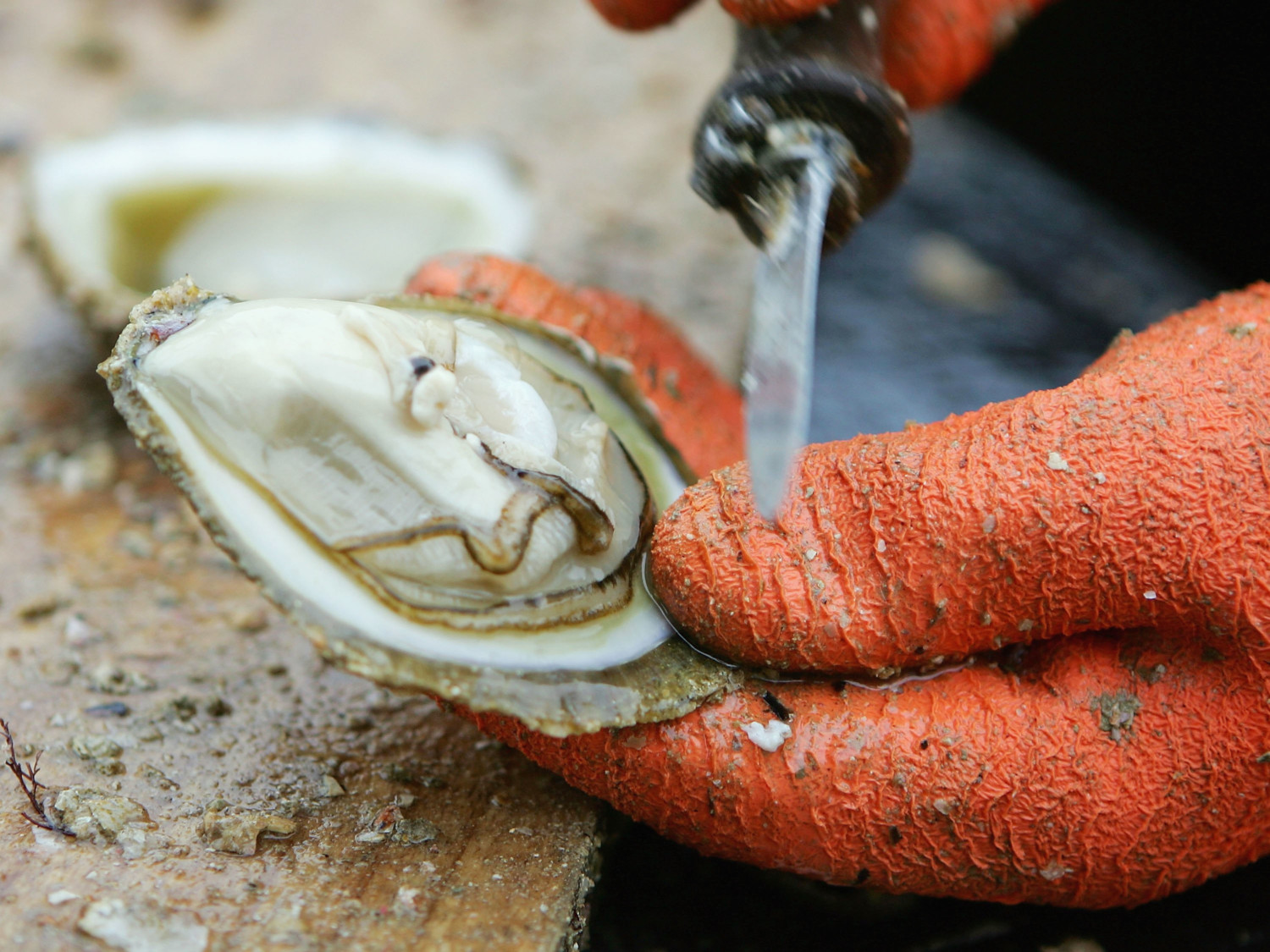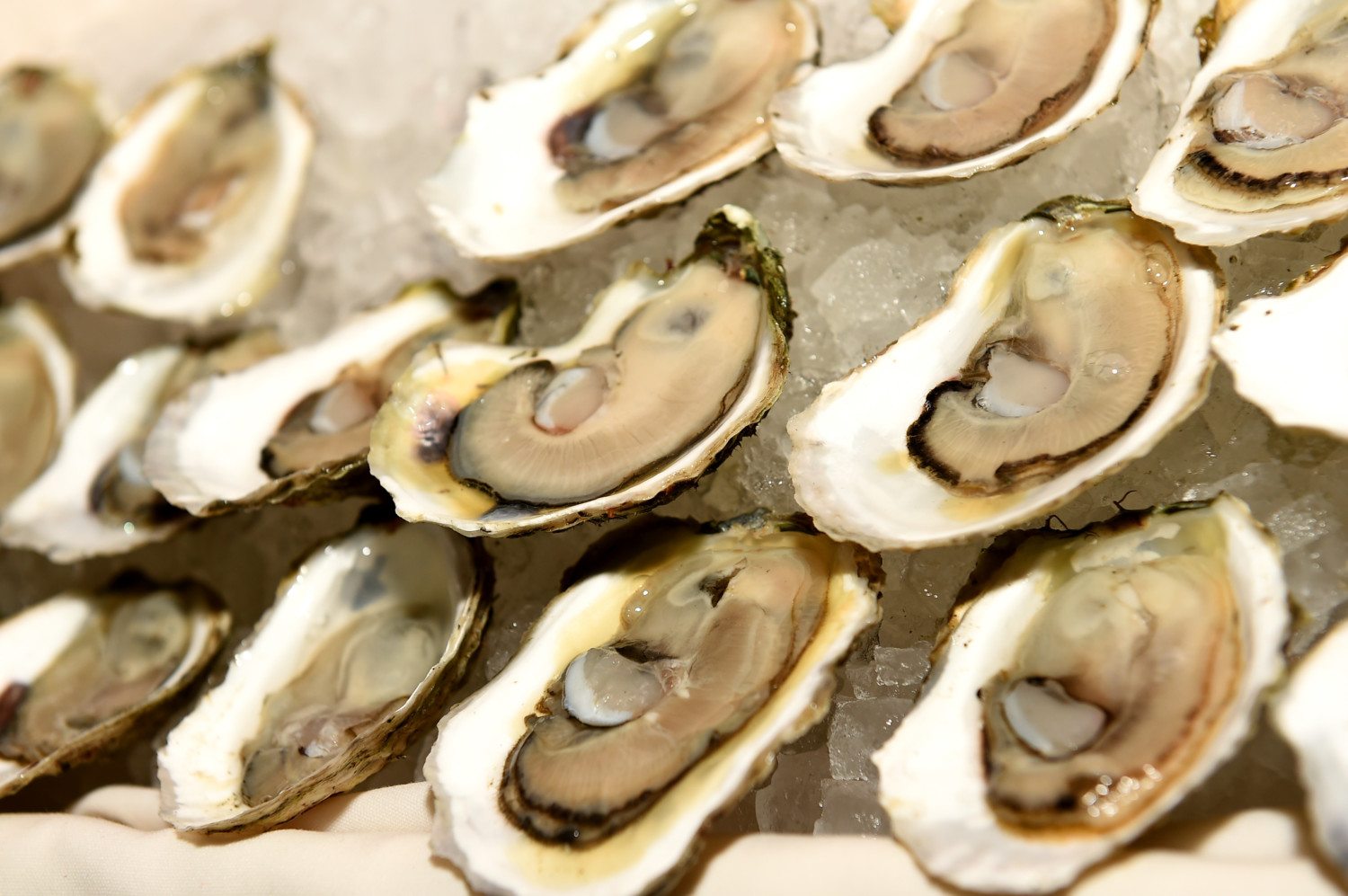If the idea of eating something that’s still alive creeps you out, you may be surprised to know that raw oysters fresh out of the shell are alive or very recently deceased.
That’s because oysters have better flavor, nutrient density and texture when they are alive or just dead — and because they’re safer to eat at that point. Dead oysters have a higher possibility of being infected by viruses and bacteria you don’t want to encounter.
But why recently dead? That’s because the act of shucking or extracting an oyster from its shell essentially rips the little bivalves apart, first when you open the shell and then when you cut an oyster free of its shell completely. The latter separates an oyster’s bottom adductor muscle from the shell, and that muscle is right by an oyster’s heart. (Many believe oysters can’t feel pain so don’t feel so bad.)
This Business Insider video explains that you actually don’t want to eat a dead oyster because of spoilage issues — and because a fresh oyster is the best oyster.
If you think oysters die once removed from water, think again. Oysters still in their shell can stay alive for up to a month if properly stored — refrigerated or on ice, cup-side down and draped with a wet paper towel. Just don’t put them back in water as they will die while trying to “feed” on the freshwater you’ve immersed them in.
How do you tell if an oyster is still alive? Its shell should be clamped shut tight. Or if a shell is slightly open but springs shut when touched, it’s also still alive.

For the record, the CDC and most health agencies recommend you don’t eat raw oysters (or other undercooked shellfish) at all because of the chance of getting infected with a rare but unpleasant bacteria species called Vibrio. There have been a few recent cases of people dying of vibriosis after eating raw oysters, often when a person had a health condition that put him or her at higher risk.
The best way to make sure your oysters are safe is to cook them properly — by baking, steaming, boiling, grilling or frying.

Does knowing how “fresh” oysters in the half shell are make you go “Oh, shucks!” or not faze you at all?
This story originally appeared on Simplemost. Checkout Simplemost for additional stories.


